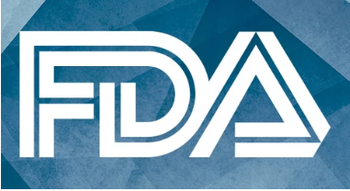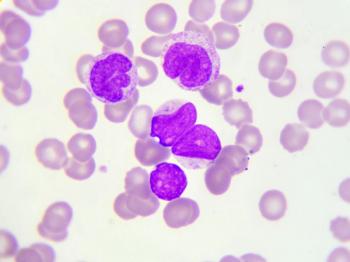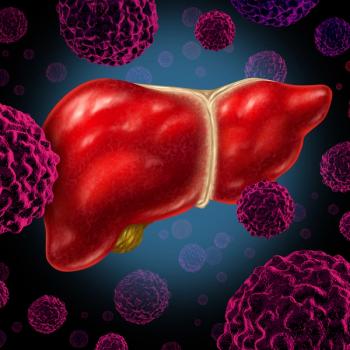
The FDA granted approval to the first oral therapy for advanced or metastatic non–small cell lung cancer harboring EGFR exon 20 insertion mutations, mobocertinib.

Your AI-Trained Oncology Knowledge Connection!


The FDA granted approval to the first oral therapy for advanced or metastatic non–small cell lung cancer harboring EGFR exon 20 insertion mutations, mobocertinib.

Based on response data from the phase 2 MAGNOLIA trial, the FDA has granted accelerated approval to the Bruton tyrosine kinase inhibitor zanubrutinib to treat patients with relapsed/refractory marginal zone lymphoma.

Patients with EGFR-positive non–small cell lung cancer whose disease is not suitable for standard EGFR TKI monotherapy had promising responses and experienced few dose-limiting toxicities with pelcitoclax plus osimertinib.

In a phase 1/2 trial, the selective targeting of EGFR exon 20 insertion mutations with mobocertinib in patients with previously treated non–small cell lung cancer resulted in superior patient-reported outcomes.

Data collected from several large studies of women with breast cancer over the age of 65 years at diagnosis show how frequently certain known pathogenic variants occur in different patient subsets.

The FDA has granted a full approval to pembrolizumab for the treatment of platinum-ineligible patients with urothelial cancer.

A novel imaging technique using the folate analog tracer FA-S0456 was able to detect small, nonpalpable lung lesions otherwise undetectable by traditional means during resection surgery.

Solid tumors with mismatch repair deficiency that have progressed on or after prior treatment and which have no suitable alternative therapy options may now be treated with dostarlimab following its approval by the FDA.

The makers of eflapegrastim received a complete response letter from the FDA due to concerns over manufacturing.

Based on results from the phase 3 COSMIC-311 trial, the FDA has accepted an application for cabozantinib use in patients with differentiated thyroid cancer with refractory disease following radioactive iodine therapy.

The mTOR inhibitor nab-sirolimus may be the first agent to receive FDA approval as therapy specifically for perivascular epithelioid cell tumors.

Compared with pivotal phase 3 trials, the use of pertuzumab in the frontline and T-DM1 in the second-line setting for HER2-positive metastatic breast cancer may lead to shorter survival outcomes.

Patients with Philadelphia chromosome–negative acute lymphocytic leukemia who have hypersensitivity to pegylated asparaginase may benefit from eryaspase treatment.

Based on detrimental effects on overall survival, the FDA has issued a safety warning for melphalan flufenamide in relapsed multiple myeloma.

Based on results of the KEYNOTE-522 trial, the FDA approved pembrolizumab, the first immunotherapy for this indication, plus chemotherapy as neoadjuvant treatment for patients with early-stage triple-negative breast cancer.

A cross-sectional study from patient survey indicates knowledge of palliative care services are lacking across patient populations.

Results of a phase 2 trial show that ibrutinib was capable of inducing responses in some patients with hairy cell leukemia who were previously treated with standard therapy options in a prior line.

Phase 3 results demonstrating the superiority of the pembrolizumab plus lenvatinib combination vs standard chemotherapy served as a confirmatory trial for its approval in certain patients with advanced endometrial cancer.

The combination of venetoclax and azacitidine will be considered as a treatment for patients with newly diagnosed, higher-risk myelodysplastic syndrome.

The ROCK-2–targeting agent belumosudil is now approved by the FDA to treat adult and pediatric patients with chronic graft-versus-host disease after 2 prior lines of therapy.

The FDA approved the combination of daratumumab and hyaluronidase-fihj plus pomalidomide/dexamethasone as therapy for certain patients with pretreated multiple myeloma.

Approval of asparaginase erwinia chrysanthemi (recombinant)-rywn represents a long-awaited alternative to E. Coli–derived asparaginase for patients with acute lymphoblastic leukemia.

The combination of cabozantinib plus atezolizumab resulted in improved progression-free survival in patients with hepatocellular carcinoma whose disease has not previously been treated vs sorafenib monotherapy.

Based on positive single-agent activity in patients with non–small cell lung cancer harboring a KRAS G12C mutation, adagrasib wins FDA breakthrough therapy designation.

Results of the phase 1 portion of ZUMA-4 support continued investigation into the efficacy of KTE-X19 in pediatric patients with B-cell acute lymphoblastic leukemia.

The anti–PD-1 antibody is being assessed as therapy for patients with recurrent or metastatic cervical cancer after positive results indicate improved responses with the monotherapy.

Avapritinib is now fully approved to treated advanced systemic mastocytosis, according to phase 1 and phase 2 clinical trial data.

Patients with myeloma who received bortezomib, thalidomide, and dexamethasone with autologous stem cell transplant had better response duration when daratumumab was used as maintenance therapy.

Data from the OPTIMUM/MUKNINE trial presented at 2021 EHA Congress show promise for daratumumab plus CVRd as induction in patients with multiple myeloma and certain high-risk disease factors.

Technetium Tc 99m tilmanocept may now be used to enhance identification of lymph nodes in pediatric patients with certain tumors.